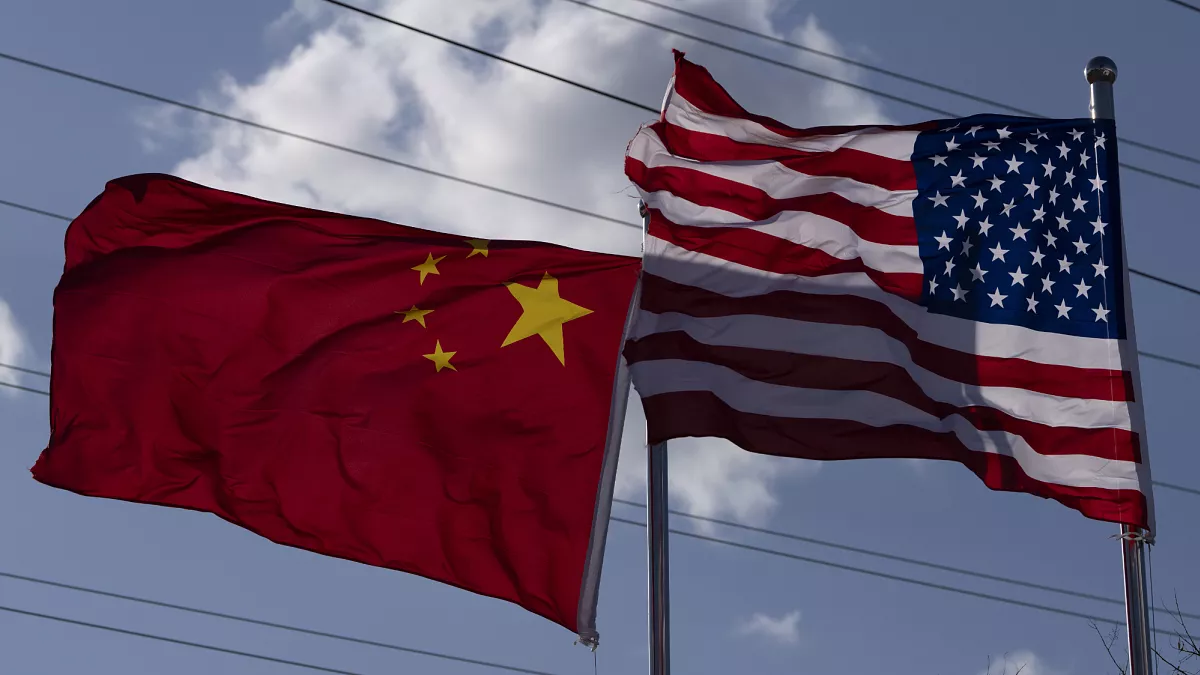China has announced fresh tariffs of up to 125% on American imports, stating it will disregard any additional levies imposed by US President Donald Trump, arguing that purchasing goods from the United States no longer makes economic sense under current conditions.
The decision comes at the end of a tumultuous week marked by escalating trade tensions between the world’s two largest economies. In response to Trump’s recent tariff hikes — which have pushed duties on Chinese goods to a total of 145% — Beijing dismissed Washington’s actions as a “numbers game” with no economic logic.
Blaming the United States for sparking global market instability, China’s finance ministry said that “at the current tariff level, there is no possibility of market acceptance for US goods exported to China.” The commerce ministry added that any further measures from Washington would be “ignored”.
“America’s repeated imposition of abnormal tariffs on China has become a joke without practical significance in economic terms,” a spokesperson stated, confirming the new tariffs will take effect from Saturday. China also confirmed it would file a formal complaint at the World Trade Organization over the latest round of US levies.

The White House’s protectionist stance, designed to pressure global manufacturers into relocating to the US and to reduce barriers to American exports, has drawn fierce criticism for triggering inflation, disturbing supply chains, and pushing key trade partners to the brink of retaliation.
Despite freezing most tariffs for 90 days amid financial market chaos, Trump pressed ahead with the extreme hike on Chinese imports. He acknowledged “transition costs and problems” caused by his trade agenda but brushed aside concerns about the resulting turmoil, insisting, “In the end, it’s going to be a beautiful thing.”
He praised the European Union for not retaliating but was quickly contradicted by EU Commission President Ursula von der Leyen, who said the bloc stood ready with a “wide range of countermeasures”. French President Emmanuel Macron urged continued preparation for action, warning the current pause in tariffs “must not lull us into inaction”.
Chinese President Xi Jinping, meeting with Spanish Prime Minister Pedro Sanchez, urged closer EU-China cooperation, saying both sides should “jointly resist unilateral bullying” and defend international fairness and justice.
Meanwhile, global markets reacted sharply to China’s retaliatory move. Asian stock markets slumped, with Tokyo plunging more than 4% after a brief rebound the previous day. European markets followed suit. Oil prices and the US dollar dipped amid fears of a global economic slowdown, while gold surged to a record high above $3,200 per ounce as investors fled volatile US assets.
Stephen Innes of SPI Asset Management summarised the growing concern: “The sugar high from Trump’s tariff pause is fading fast. The world’s two largest economies are in a full-blown trade war — and there are no winners.”
While critics argue that Trump’s aggressive tactics are damaging global supply chains and isolating key allies, Commerce Secretary Howard Lutnick remained defiant, claiming on social media that “the Golden Age is coming” and pledging to pursue “explosive” economic growth through global negotiations.
Trump warned that the paused tariffs could return if negotiations stall. “If we can’t make the deal we want… then we’d go back to where we were,” he said.
Canadian Prime Minister Mark Carney welcomed the temporary tariff freeze and confirmed that Canada would begin trade negotiations with the US following its general election later this month. Vietnam has also agreed to begin trade talks with Washington, while Pakistan is dispatching a delegation for similar discussions.
As the tariff conflict intensifies, Xi is expected to visit Vietnam, Malaysia, and Cambodia next week, where the trade war will be high on the agenda as China seeks allies in its economic standoff with the United States.


 Trending
Trending 